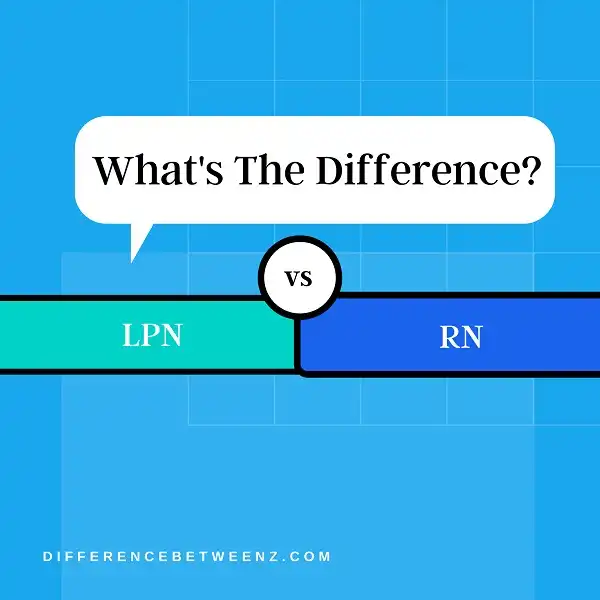Registered nurses and licensed practical nurses have many of the same duties, but there are some key differences between the two roles. Here we’ll outline the main distinctions. RNs generally have more education and clinical experience than LPNs. RNs also typically take on a supervisory role in a nursing environment, while LPNs often work under the direction of an RN or other healthcare professional. Finally, RNs can specialize in certain areas of nursing, while LPNs are more generalists. Though both careers are important to the field of nursing, these are just a few ways in which they differ.
What is LPN?
LPN, or licensed practical nurse, is a type of nursing professional who works in a variety of healthcare settings. This career path requires an associate’s degree and successful completion of the National Council Licensure Examination for Practical Nurses (NCLEX-PN). LPNs perform a range of diagnostic, therapeutic, and preventive healthcare tasks under the direction of registered nurses (RNs) or other medical professionals. Some of the duties that LPNs typically perform include administering medication, monitoring patient progress and vital signs, assisting with physical examinations and medical treatments, and providing basic patient education. By working closely with other healthcare providers, LPNs play an important role in ensuring the safety and well-being of patients at all times. Because they have both technical knowledge as well as compassion and communication skills, LPNs are key members of the healthcare team.
What is RN?
RN, or registered nurse, is a professional designation awarded to individuals who have successfully completed a nursing program and passed the relevant licensing exam. RNs specialize in different areas of practice and are responsible for providing care and support to patients of all ages. Some RNs work with adult patients in hospitals or clinics, while others work with newborn infants in neonatal intensive care units. RNs also often play an important role in educating patients on how to manage their condition or prevent illness. Whether working directly with patients or educating the public, RNs help to promote the health and well-being of the community. So if you want a career that is both fulfilling and challenging, consider becoming an RN today.
Difference between LPN and RN
Licensed practical nurses (LPNs) and registered nurses (RNs) both provide care to patients in a variety of settings. However, there are some key differences between the two roles. LPNs typically have less education than RNs and are therefore responsible for providing basic patient care, such as taking vital signs and helping with activities of daily living. RNs, on the other hand, have more education and training and are therefore responsible for more complex tasks, such as administering medication and performing diagnostic tests. In addition, RNs often play a more hands-on role in patient care than LPNs, as they are typically the ones who develop care plans and coordinate care teams. Ultimately, both LPNs and RNs play an important role in providing quality patient care.
Conclusion
The biggest difference between an LPN and RN is the level of education and training they receive. An LPN typically has a diploma or associate’s degree, while an RN has a bachelor’s or master’s degree. This means that RNs are more qualified to handle complex patient care than LPNs. Additionally, RNs must pass a national licensing exam before they can practice, while LPNs do not have to take any extra tests after graduating from their program. If you are considering becoming an LPN or RN, it’s important to understand the differences between the two roles so you can choose the path that is best for you.


